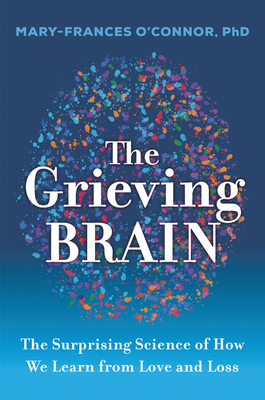Book Review #2
The Grieving Brain by Mary Frances O'Connor
Written by: Natasha BYTS
3/9/20253 min read


The Grieving Brain by Mary-Frances O’Connor
As someone who has dealt with a lot of loss within the past few years, I decided to pick up this book.
I read this book in one day.
Some of the things it goes over are:
It’s normal to think you’ve seen your deceased loved one after they have died.
Rats in a box were attracted to a blue Lego. When they were by the Lego their neurons fired. The Lego was taken out of the box, and when the rats went to where the blue Lego used to be their neurons still fired up.
That’s how O’Connor explains having someone in our lives then they die, and they are gone.
Your brain still expects them to be there even though they are not. It’s hard for your brain to change its routine out of nowhere. The hippocampus stores the remembrance, the routine.
During grief your blood pressure rises. When you’re comforted it normalizes. I did not know this.
This book discusses the correlation between religious beliefs and grief. And how religion brings comfort to know where there loved one is after their death.
Our brain must learn that our loved one isn’t going to be there tomorrow or the next day.” The idea that a person simply does not exist anymore does not follow the rules the brain has learned over a lifetime”.
The brain assumes our loved one is missing but will reappear.
The author tells you to be present in the moment and remember the past and to try not to live in the past pretending that time has stopped.
No matter what, we can never go back, and we can never stop time.
It discusses ghosting and closeness, anger, attachments and bonds.
Our brain is wired to believe our loved one isn’t really gone, or that they are coming back. When you’re not able to properly say goodbye or see your loved one’s decline or death it complicates the grieving process.
We usually need overwhelming evidence from our memories of their death or decline. Rewiring our understanding may take longer or cause greater distress.
Which makes sense as I didn’t get to say goodbye to my mother, my cat or my friend. It’s hard to accept they aren’t around due to death.
With time your brain develops a new routine and having new experiences cause by the absence of the death.
“Grief is the cost of loving someone. Bonding gives us the motivation to believe that when our loved one leaves us, it is temporary, and they will return.”
There is a lot of scientific talk and words in this book.
The difference between grief and depression is discussed. Grief is a natural response to loss and depression seems to come out of nowhere.
O’Connor covers prolonged grief disorder, complicated grief, grief and the structure of the brain, yearning and rumination.
The book also goes over being in the present moment.
“Grief is the painful emotional state that naturally rises and fades away, again and again. Grieving is the change from having your attachment needs fulfilled by your deceased loved one to having them consistently fulfilled in other ways. That does not necessarily mean fulfilled by another person.”
Having a meaningful life helps fill the void.
Grief feels and appears differently in each person.
Death changes us. Death is a part of nature therefore so is grief.
I found this book to be somewhat informative. It really focuses on the science of things so if you’re into science you’ll most likely enjoy it.
The author did nothing to help with my grief so if you’re looking for a self-help grief book, this one is not it.
I give it a 6 out of 10.
I’d borrow it, not buy it.
~Natasha BYTS
